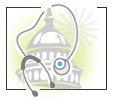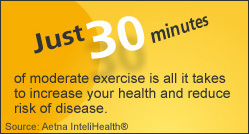Drug safety: Avoid medication errors
Did you know?
- More than half of U.S. adults take prescription medication in any given week1
- Many of them - 10% - take more than five different medications2
- 700,000 Americans end up in emergency rooms each year due to bad drug reactions3
But there's good news!
In 2007, the FDA announced 41 different initiatives focusing on drug and medical safety. This means more ways to prevent medication errors from ever happening.
Types of mistakes
One of the best ways to prevent mistakes with your medication is to know what you're looking for. Here's a list of some common prescription drug errors.
- Patients and doctors can be confused by drugs that sound alike. Taxol and Taxotere sound alike but are used to treat very different forms of cancer.
- Unclear handwriting can lead to errors in dosage. Confusion about the purpose of a prescription can lead to overdosing or underdosing as well, because the dosage may vary for different conditions.
- Even simple forgetfulness can cause problems. Perhaps you forgot that you took your once-a-day pill this morning, so you take another one in the afternoon.
- Receiving a prescription that doesn't mix well with your other medicines or conditions is another danger. If you take more than one medication, you should check for possible interactions.
- It's even possible for your pharmacy to give you a drug that was meant for somebody else by mistake. This is why it's important to always check the label - and your prescription - before leaving the pharmacy.
Safeguards in the system
Here are just some of the safeguards that exist to help prevent common medication errors:
- Doctors and pharmacists check your records to make sure that a prescription is right for your age, gender, weight, medical conditions and allergies.
- Pharmacy and health insurance company computer systems perform safety checks automatically.
- Computerized drug-ordering systems are used in some hospitals and medical offices.
- ID bracelets and tracking systems are used in hospitals to make sure the right patient gets the right drug.
- Devices are built into medical equipment to help prevent mistakes (such as preventing someone from getting an anesthetic gas instead of oxygen).
- Some physicians use handheld personal digital assistant (PDA) devices with software that checks for potentially harmful drug interactions.
- Warnings are placed on drug bottle labels - for example, to avoid alcohol while taking the drug.
10 steps to prevent medication errors
1. When you get a new prescription, ask your doctor the name of the drug, the dosage and what it does. Ask when and how often to take it. Write it down. Follow the directions exactly.
2. Learn about your medicine. Ask your doctor or pharmacist for written information you can understand. Or, look up the drugs in our Find Drug Information section.
3. Before leaving the pharmacy, read the prescription label to make sure the medication name and dosage are what your doctor prescribed. Look at the medicine to see if anything seems different. If you have questions, ask the pharmacist.
4. Stick to your medicine schedule. Don't take more or less than your doctor directed. Don't stop taking the medicine without checking with your doctor first.
5. Know what side effects your medicine can cause, and what to do if they occur. If you start to feel strange or sick after beginning a new prescription, call your doctor right away.
6. Keep medicine in its original container. Never take medicine in the dark. Always look to make sure you're taking the correct drug.
7. If you tend to forget to take your medicine, try using special pill boxes to help you remember your medication schedule.
8. Make sure your doctors and pharmacist know everything you are taking, including prescriptions and over-the-counter drugs, herbs and vitamins. Alert them to your known allergies.
9. In the hospital, make sure that everyone knows your medical and medication history, including allergies and previous bad reactions to anesthesia. Ask about any new medication you get. Ask the nurse to make sure it's what the doctor ordered.
10. If you are too ill or feel uncomfortable asking questions, have a family member or friend do this for you.





 FEEDBACK
FEEDBACK